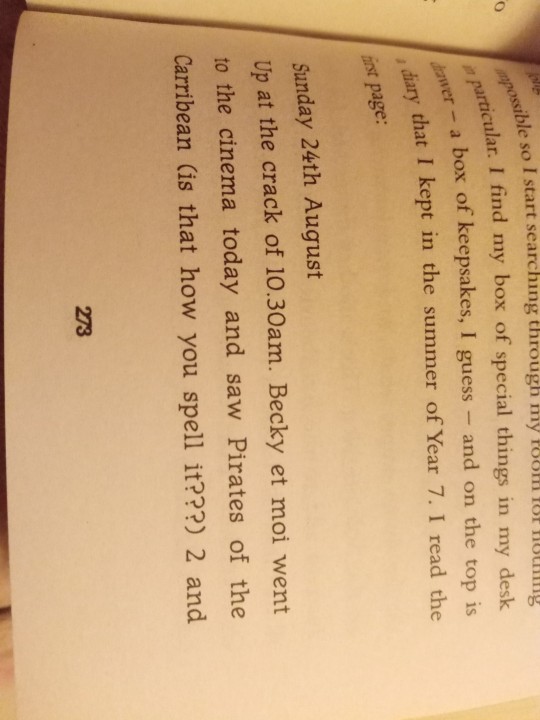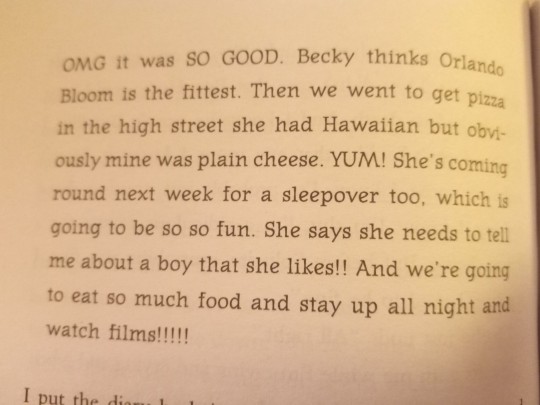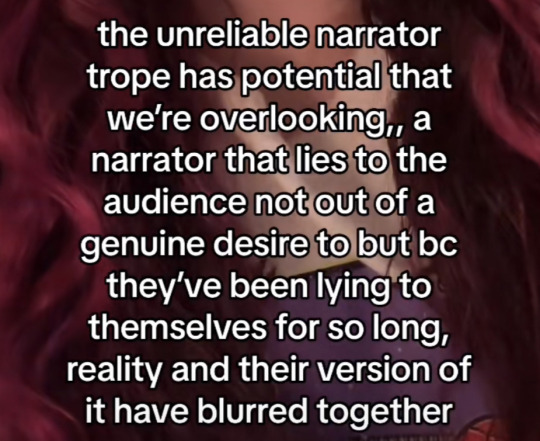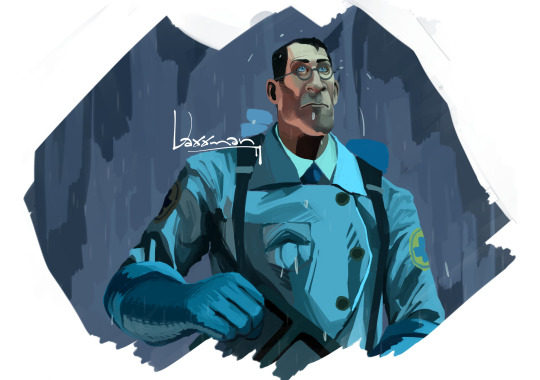#unreliable narration
Text
For you and in honor of themes of unreliable narration, a list of contradictions surrounding Mike - both inconsistencies within his own story and his story vs Will's biased perspective (just in season 4):
Will says Mike ignored Will all day and we see in his POV Mike and El laughing and holding hands happily. Mike says he has been unhappy all day because he has been distracted by Will's grumpiness.
Will says Mike didn't call him and Mike defends his reasons for not calling him. Dustin says Mike complains constantly about not being able to get through to Will.
Mike says he was distracted from El by Will's grumpiness at the roller rink. Mike later says he ignored Will because he was too focused on El *(note: it is unclear whether this is reference to the time between seeing each other, the day of the roller rink, or the time since. If the time since, it is applicable, in both other cases, it is contradictory)
Mike tells Will that he couldn't tell El he loved her, followed by him appearing to think deeply about Will saying that it's hard to tell loved ones things that might hurt them. Without an onscreen transition, Mike tells El he loves her, something she has been wanting to hear.
Will sees Mike romantically tell El he loves her; in his perspective, they are more in love than ever. Mike tells Will two days later that she has hardly spoken to him in the past two days and when she did, it was not about what he said to her.
[I elaborate below the cut on how we know which is real but if you just want the list you can end here]
The real events are there, laid out for us. You can pick these apart into two distinct categories and label them one of two things:
Mike does not reciprocate narrative: he did not call, his focus at the rink was El, Mike is able to tell El he loves her truthfully and organically, this results in them being in a good place
Mike does reciprocate narrative: he did call, his focus at the rink was Will, he either told El he loved her based on the painting or it was a lie, and they have hardly spoken in the two days since him saying it.
The alternate titles for these are
Will's POV: he is not present for Dustin's comment, he believes what he sees and what Mike revises in his more recent apology, he has no way of knowing Mike's mental transition, and he likely dismissed the two days comment in favor of prioritizing concern over El
Mike's POV: he called then lied about it, he was distracted by Will then later revised his statement, he either lied or was convinced by the painting, and El has hardly spoken to him in two days.
I could go on about how the "Mike does not reciprocate narrative" always comes after, or in correction to, the "Mike does reciprocate narrative" or how the reciprocation proof is often said in private to a third party with low stakes whereas the no reciprocation proof is said in front of others with pressure of the other person's reaction and high stakes, but really all I need is the proof of the revised titles:
Which do we think is more credible? Will's perspective of whether Mike reciprocates? Or Mike's? And which narrative does that align with?
Ah...
#unreliable narration#themes#stranger things#byler meta#byler evidence#povs#bonus!: our intel on el's pov of their relationship is very limited but all we do have for sure is that she felt unloved by mike and#after he told her he loved her she did not address it and spoke to mike minimally in the two days since
3 notes
·
View notes
Text
Unreliable Narration
Hello, I’m titanium-knave, and I will be doing a meta today on narration. The most common perspective style in fiction is second person (“You do this” “You do that”). It is featured in works such as F. Scott Fitzgerald’s book The Great Gatsby.
Ah, but. I should tell you. Everything I have said so far has been a lie.
Maybe you trusted me. Maybe you had prior knowledge that contradicted what I just said. Maybe you weren’t paying attention or even thinking about the accuracy of my statement.
Either way, I just told you I was lying, so how can you be sure anything I say going forward is the truth?
I am cobalt-knave, and today, I will be telling you about unreliable narrators in fiction. An unreliable narrator is any narrator that is untrustworthy, most often seen in first person perspective. There are many benefits to using unreliable narration, but the foremost is that you, as the author, can control the experience of the reader by embracing the world and characters of the story. For some examples of this, I will discuss how it can be used to match a reader’s experience with the main character, how it can be used to establish in-world foundations for mistakes on the author’s end, and how it can be used to manipulate your readers while drawing them in further.
Everyone’s experiences are unique. Truly walking in someone else’s shoes is an impossibility, and yet that is what fiction strives towards. By using unreliable narration and setting aside objective reality, the door is opened into the character’s perspective, as skewed as it may be.
An example is Challenger Deep by Neal Shusterman whose main character Caden has schizophrenia. Unreality and skewed reality is essential to understanding his perspective. One of my favorite moments in the book is this:
“I think about the bartenders, and wonder what diabolical things they’ll be putting into my cocktail. Spleen of chameleon. Testicle of tarantula. Eventually I realize that I’m sitting there with a fork in the air, and food drooling out of the side of my mouth. I feel like I could have been like that for hours, but probably not, because Carlyle would let it go on only for a few seconds. […]
Carlyle takes the spoon out of my hand and sets it down. ‘Maybe you’ll eat more later,’ he says, realizing this meal isn’t happening.
‘Maybe I’ll eat more later.’ It is not lost on me that the fork has magically transformed into a spoon.”
I love that moment, and I never remember it until it comes. We do not know if it is a spoon or a fork. Caden does not know this. The objective reality does not matter. What matters is the lack of objective reality, which is the driving force of the book, shifting in and out of “the real world” as Caden’s viewpoint shifts. As Caden’s mind wanders, so too does the prose. The use of unreliable narration distills down what makes the main character’s viewpoint true to them, which is their experience of the world, not the world itself and lets the reader experience It too.
But it’s not just the main character who can make mistakes. Inconsistencies, continuity errors, mistakes in general on the author’s part can be leaned into and worked into the story through unreliable narration. Your mistakes are your character’s mistakes.
An example of this is in the audio drama The Magnus Archives written by Jonathan Sims. The format involves an archivist recording people’s personal accounts and any follow up that was done on them. It’s horror, and the recording process is something that physically affects the archivist, making him feel watched and afraid, which he is determined to deny. Several mistakes on Sims’ part were pointed out early on, and, rather than retcon or ignore the complaints, he worked them into the show.
“TIM. So, in case 8163103, it isn’t clear if Albrecht’s wife is called ‘Clara’ or ‘Carla,’ ‘cause you keep switching back and forth…
ARCHIVIST. Well, I’m sorry if I found it hard to read a 200-year old letter, written in cursive by a native German speaker. Who complained about that one?”
A lot going on here. First, this brings the audience in rather than pushing them away. The audience members who pointed out the issue are brought up as students who complained. This also introduces Tim as a character, someone who will notice and point out errors. It develops the Archivist as a character.
It also sets the precedent that any errors are on the archivist. He will not always be consistent; he’s just a person who’s stubborn and afraid and is going to mis-speak and get very defensive about it.
This is the scene that establishes on no uncertain terms that the main character is not a trustworthy source of objective information, something that is very key to his character. And this comes from leaning in. A mistake can become a pivotal character choice if you lean in. It also handily passes your mistakes onto a fiction character.
Mistakes are not intentional. Subjective experience isn’t intentional. But you know what is? Lying. A third section of unreliable narrators includes the liars and manipulators. Unreliable narration can be used on the part of both author and character to manipulate readers while drawing them in further.
An example of this I love is from the podcast WOE.BEGONE. It is fictional but mostly takes the form of a podcast in-universe, meaning that the main character is recording and publishing what we hear. Here is when the main character, Mike Walters, explains how exactly he has been using that to his advantage and throws into question everything he has told us so far.
“I was sure that CANNONBALL used the podcast to figure out what I was thinking and doing, so I started using it as a way to lie directly to his face. I know that CANNONBALL takes me for a chump who will just spill every little bit of his guts out for podcast listens, so it was pretty easy to plant lies among the truths in the story (remember that “limited hangout” thing we talked about last episode?). I mean, this is a guy who seemed to honestly believe that my name was Mike Walters.”
You may have noticed that this is the same technique I used at the start of this meta. Hooked you, didn’t it? Scenes like this, the reveal of the lie without exposing the truth, are hooks. Questions are left unanswered. In WOE.BEGONE, we never learn Mike’s real name. We simply know it is not Mike Walters. This adds a two major elements: mystery – the reader stays in hopes of getting answers – and the train wreck effect – the readers stays to see what this manipulative, lying main character is going to do next. They are unpredictable, and unpredictability can be very fun in fiction.
Fundamentally, unreliable narration will always be truer to a first person perspective because all people experience the world differently. If I asked three of you to repeat my speech without offering you my script, I guarantee there would be three different speeches given and none of them my own. Because, everyone notices and remembers different things. What jumps out to one might blend in to another and even that relies on memory and senses and very subjective experience. We are all unreliable narrators. So, using that unintentionally in writing, leaning in, can open up so much opportunity. You control the narrative. Nobody can contradict what you say.
And remember, trust no one.
9 notes
·
View notes
Text

(Amazing header image by @ traineecryptid)
Unreliable Narration by fox_of_nine_tales
Fandom: DMBJ | The Grave Robber’s Chronicles and related fandoms
Relationship: Liu Sang and the Iron Triangle
Rating: Teen
Tags: Canon Compliant, Whump, Hurt/Comfort, Injury, temporary disability, Caretaking, Competence, Liu Sang Needs A Hug, Liu Sang Gets A Hug, liu sang competence kink
Written for the DMBJ Gen Exchange 2022
Summary:
Liu Sang can do this.
He’s a professional, after all. That’s why the Iron Triangle brings him on these trips. He can map, and fight, and hold his own. Except now they've been separated from the others, and they're trapped, and Wu Xie's hurt, and their supplies are running low, and Liu Sang -
Liu Sang can do this.
He always has.
Excerpt:
It was the cold that woke Liu Sang. It was always the cold; in the high desert altitudes, night fell like the flipping of a switch, leaching away the sun's heat in an instant. It had only been three days, but it was amazing how quickly something became routine: wake up, rub his eyes and blink into the starless dark, then roll over and check that Wu Xie hadn't died while he slept.
Author’s commentary:
Under the cut because of spoilers - don’t read before reading the fic!
FIC SPOILERS BELOW
S
P
O
I
L
E
R
S
So this is an idea I’d had for a while! I’d been working on another Liu Sang POV fic and doing a “sensory pass” during edits, which is where I make sure that I’ve included enough sense detail to ground the story in the surroundings. With Liu Sang and his hearing, it’s important to include more auditory descriptions than usual, to the point that I found myself cutting down on visual descriptions some, which got me thinking... I wonder if it would be possible to cut out the visual descriptions completely without people noticing?
It was a fascinating idea from a writerly standpoint, but it was also a decidedly challenging one, so I shelved the idea and didn’t really even think of it again until I was doing my usual mid-exchange panicked “Oh god what do I write for my recipient!!!!” self-doubt spiral and suddenly remembered that I had this in my back pocket. I wanted a whumpy idea, and this one had whump potential like woah. Even then, it fought me. Honestly, the hardest bit was figuring out who he was trapped with; I knew he needed to be trapped with someone, because I needed those interpersonal interactions to pull some of the attention away from his physical situation to keep readers from cluing in. At first I tried Xiaoge, and then I tried Pangzi, but it was just Not Working until I finally tried Wu Xie and everything clicked.
This was definitely a challenging fic to write, but it was also SO MUCH FUN on a technical level. Part of the challenge was that I wanted to do more than just hide that that he was blind until the reveal; readers of Megan Whalen Turner’s “Queen’s Thief” series will understand where I was coming from with my goals for this fic, which was to both obscure what was going on AND to drop enough hints all along the way that it would make a clue-spotting reread very satisfying. Not gonna lie, I was greatly helped by the way writers tend to commonly use blindness in a metaphorical sense, so that I could say things like “blink into the starless dark” and have people just go, “Oh, yeah, poetic phrasing, nice.” So freakin’ fun.
The absolute most challenging part was the “boss fight” because those few sentences between where the bad guy can first see Liu Sang and the Big Reveal were the ones where the lack of any visual observations was the most likely to be noticed. Fortunately, that almost worked better on a readerly level than full concealment the whole way, because it gave juuuuuuust enough time to start wondering “wait...is he?” before the “yes, he is!” reveal for people to feel very clever if they figured it out, so that was actually a delightful side effect.
And of course, hopefully if someone realized it from the get-go and wasn’t surprised at all, there was enough whump and comfort to make the fic enjoyable on its own!
Getting to work in blindness on a metaphorical as well as physical level with Liu Sang’s blindness to what he means to the Iron Triangle and then gaining more than one kind of sight/realization at the end was one of those joyful “Ahhhh, it’s all tying together!” moments that you’re lucky enough to get sometimes as an author. Working in the fic starting with the fall of night and ending at the break of dawn (again, physically AND metaphorically) was just the icing on the cake.
I have to admit that the title was pure self-indulgence, for the joy of knowing that people would immediately spot the unreliable narration of Liu Sang’s poor perception of his own capability and importance to others and would (hopefully) completely miss the second layer of unreliable narration going on. I may have nearly driven off the road with cackling delight when that title occurred to me, not gonna lie.
I was so delighted to get to finally get this idea on the page. Thank you, Frith, for giving me the chance!
#dmbj#foxfic#my fic#unreliable narration#liu sang#iron triangle#the 'i love this character let me make them suffer' is strong with this one#but so too is the comfort
25 notes
·
View notes
Text



yeah sure pal
2 notes
·
View notes
Link

[ID: "The main title, ‘Unreliable Narration’, is set in large, dramatic, slightly distorted letters over the image of a narrow, irregular canyon in warm, earthy colours. Close inspection reveals small red finger and hand prints irregularly dotted along the rock. Subtitle reads, ‘by fox_of_nine_tales, read by Thimblerig’" End ID]
Chapters: 1/1
Fandom: 盗墓笔记重启 | The Lost Tomb Reboot (TV), 盗墓笔记 - 南派三叔 | The Grave Robbers' Chronicles - Xu Lei, The Lost Tomb - All Media Types
Rating: Teen And Up Audiences
Warnings: No Archive Warnings Apply
Relationships: Liu Sang & Wang Pangzi & Wu Xie & Zhang Qiling
Characters: Liu Sang (DMBJ Series), Wang Pangzi, Wu Xie (DMBJ Series), Zhang Qiling
Additional Tags: Canon Compliant, Whump, Hurt/Comfort, Injury, temporary disability, Caretaking, Competence, Liu Sang Needs A Hug (DMBJ Series), Liu Sang Gets A Hug (DMBJ Series), liu sang competence kink, Podfic, Podfic Length: 1-1.5 Hours
Summary:
Liu Sang can do this.
He’s a professional, after all. That’s why the Iron Triangle brings him on these trips. He can map, and fight, and hold his own. Except now they've been separated from the others, and they're trapped, and Wu Xie's hurt, and their supplies are running low, and Liu Sang -
Liu Sang can do this.
He always has.
*
Had an excellent time working on this glorious h/c fic by @foxofninetales - even if podfic isn’t your thing, I recommend checking the fic out.
10 notes
·
View notes
Text
I feel like many people have a fundamental misconception of what unreliable narrator means. It's simply a narrative vehicle not a character flaw or a sign that the character is a bad person. There are also many different types of unreliable narrators in fiction. Being an unreliable narrator doesn't necessarily mean that the character is 'wrong', it definitely doesn't mean that they're wrong about everything even if some aspects in their story are inaccurate, and only some unreliable narrators actively and consciously lie. Stories that have unreliable narrators also tend to deal with perception and memory and they often don't even have one objective truth, just different versions. It reflects real life where we know human memory is highly unreliable and vague and people can interpret same events very differently
#the way some people (usually lestat fans lol) talk about louis being an unreliable narrator has frustrated me#i still insist louis' unreliableness is mostly subtle (passing quickly over things he doesn't want to think about#presenting things that factually happened in a way he can build a story that makes sense to him#not knowing what lestat is thinking and feeling so interpreting him differently than lestat himself probably would)#rather than he's telling something that didn't really happen or is under armand's mind control or something#like for example i think it's been made very clear all the abuse really happened they're not gonna suddenly pull the rug from under it#if anything i feel lestat is going to turn out to be even worse than louis perceived him when we hear people who are not in love w him lol#keanu.txt
24K notes
·
View notes
Text
I'm on a duet kick and I'm marvelling about what an amazing song Somebody That I Used to Know is from a narrative perspective. We're told this sad tale about love and we're all sympathizing with this poor man:

And then the girl shows up shouts, "UNRELIABLE NARRATOR!"

The guy tries to get us back, "No wait! This is my pity party! Hear my sad tale again." But he's lost us, we can't see him in the same way again. The spell is broken. And the spell remains broken, you cannot hear the first verse in the same way ever again.
The acting in the music video too, the way he silently accepts her words. The way he flinches as she talks. He was trying to write his own narrative but he can't stand hearing the truth. And he has no new rebuttal, he can't refute her.
1K notes
·
View notes
Text
the fact that tolkien started writing lord of the rings, realised that the entire concept of the one ring made various plot elements of the hobbit fall to pieces, and dealt with this by saying 'the reason this makes no sense is because the hobbit is from bilbo's perspective and he fudged the truth' is already extremely powerful. but then he actually went the extra mile and re-released the book as essentially the same book but with the plot holes fixed and said 'please enjoy this Objectively True version of this story, untainted by bilbo's mischievous lies' like what a flex. absolute madlad
#playing the 'unreliable narrator' card to hide the fact that your sequel created a retroactive continuity error in your first book?#bold move#rewriting your first book to fix the stuff that didn't make sense?#INCREDIBLY bold move.#be shh now#lotr#the hobbit#i think more authors should do this instead of frantically trying to justify mistakes in their work#that thing you noticed that didn't make sense? don't worry about it bro. didn't happen#containment breach
28K notes
·
View notes
Text
comics are in and of itself, an unreliable narrator.
i say this because i started my comic journey with jason todd. i read all his robin appearances, pre and post crisis, then read hush and under the red hood, and all i could think about was what the fuck. what the fuck batman. how did you become this. what happened between 1988 and 2006. how did the the man who's life revolved around caring for this child, teaching this child, learning from this child, protecting this child, losing this child — become hurting him.
it was so baffling to me i found myself slipping into the batman shaped void that many never return from (lol). and so now, i have read over 1500 batman comics, over 300 different writers, spanning over 80 years of publication. i finally get to what happened between 1988 and 2006, and how batman as a character has become as unrecognisable as he has remained familiar. i see the events of alpod, knightfall, cataclysm, no man's land, the 200 individual batman issues and 200 individual detective comics issues alone that had passed, not taking into account the the other long runs, mini runs, short stories or collaborative comics that were released in those 18 years. the people he had met, lost, been betrayed by, abandoned in those stories.
it has only been about 5 years since jason todd died for bruce wayne. 5 years that have felt like two decades.
it has only been around 4 years for jason since he climbed his way out of his grave. 4 years that felt like less than three.
so when reading as jason, i felt betrayed. how could batman do this? how can't he see? he knows how i would have mourned him, he knows how fiercely i love him, how all i want is for him to prove he ever loved me the same way. how can he not change after all these years? how is he not aware that he is not the change gotham needs? (how does he not see that he is what i need — needed.) how will he save gotham? he can't. he can't save gotham. he can't save me. but i can. i can fix it.
then i read as bruce and i am betrayed. who is this? why does he doubt how much i loved him? what changed? why did he change? (am i the one who changed? no, surely not.) after everything, the people i have hurt, the people i have lost, the people i have sacrificed for gotham, how can he doubt? he would have never asked me to do this before, he understood, i'm sure he did, before. i won't choose. i can't choose. where is my son. where am i. i can't save gotham. i can't save you. but i can fix it. i can fix you.
they're both wrong.
#the next step after realising your fav character is an unreliable narrator#is admitting you are too#bruce wayne#jason todd#saki comic talks
1K notes
·
View notes
Text
Another example of unreliable narration!
Dustin exclaims that Vecna is working for the Mind Flayer.
not quite. He is the mind flayer. But it’s declared to us with such confidence that it seems like the answer. But because it is told and not shown to us, it can never be ensured as credible.
11 notes
·
View notes
Text
Reading old bargain books can be so lonely
#the only other person who read this book on tumblr thought it was slow so skipped whole passages#i ended up liking it a lot more than i thought i would#it was creepy and funny and challenging#the grotesque#patrick mcgrath#unreliable narration
1 note
·
View note
Text

Kim dokja
1K notes
·
View notes
Text
subjective perspective =/= unreliable narration
like. i am holding you gently by the face. listen to me. all narration will reflect a subjective experience. this is not the same as an unreliable narrator. the unreliable narrator lacks credibility for a specific reason - they’re an exaggerator, they’re insane, they’re a joker, they’re an outright liar. a character whose view of things is merely coloured by their backstory and experiences is not inherently unreliable, simply subjective. an unreliable narrator is intentionally or significantly altering the truth, to position the audience deliberately. it’s a specific literary device, not a default in POV storytelling.
#books#saw someone call Damen an unreliable narrator again and hmmm#he just. isn’t.#as a narrator he isn’t positioned to actively hoodwink you (the reader)#he is the conduit through which you (the reader) also discover the details of the story#anyway. today on mini lit lessons with tumblr user b irregularcollapse#mini lit lessons
4K notes
·
View notes
Note
Could you maybe write some prompts for portraying an unreliable narrator?
How to Write an Unreliable Narrator
-> 8 Tips to Writing Unreliable Narrators - Writer's Digest
make them a liar. Have them commit their faults outright, contradict themselves in the narrative, prove them to be a liar by their actions, have them hint that they know more than they're telling, reveal the truth a little later than they should, or have gaps in their memory.
shift their motives. Give your character conflicting desires and changing drives. Keep your reader guessing about their true mindset. (Are they in love with Character B? Or are they obsessed with Character B? Do they want to help B, or do they want to harm B?)
make them more clever than they appear. Have your reader believe your character is innocent and incapable of cunning and calculating schemes. Maybe they appear innocent and naive to the reader, and only later it is revealed that their childish actions have purpose.
use your secondary characters. Have them catch your narrator in lie, reveal that they are a victim of your narrator's lie, reveal a truth that the narrator has yet to share with the reader. How they treat the narrator can also show their unreliability. Sharing personal histories with the narrator may expose a side to the narrator that the reader hasn't seen.
add an unpredictable act. When a calm, thoughtful, innocent character suddenly does something out of character and a little unhinged, they become unreliable. (ex: a grieving woman suddenly throws all of her husband's belongings in the lake.)
4 Types of Unreliable Narrators:
-> What Is an Unreliable Narrator? - MasterClass
Picaro. The picaro is a character who has a knack for exaggerating.
Madman. The madman is unreliable because they are mentally detached from reality.
Naif. The naif’s narrative abilities are impacted by inexperience or age.
Liar. The liar is the most deliberate of all the unreliable narrators. The character fabricates stories, often to paint a better picture of themselves or achieve a desired outcome.
If you like what I do and want to support me, please consider donating! I also offer editing services and other writing advice on my Ko-fi!
#creative writing#writeblr#ask box prompts#how to write#how to write an unreliable narrator#unreliable narrators#writing help#writing advice#writing tips#writing tools#writing characters#writing resources#writing prompts
1K notes
·
View notes
Text

#AAAAAAAAAAAAAHHHHHH#MY FATHER GUYS ITS MY FAYHER SHEN JIU#SHEN JIUUUUU WHERE IS HE#Guys I'm hysterical#shen jiu#svsss#scum villain#scumbag self saving system#scum villain self saving system#this danmei was my first danmei it has a special place in my heart#as much as I like sqq our resident unreliable narrator I want shen jiu still#I hope you're happy somewhere 😭#I get psychic and emotional damage every time I think of you
1K notes
·
View notes
Text


M
#team fortress 2#tf2#tf2 medic#emesis blue#when I said “I will stick to black and white”? I lied screencap redraw be upon ye#Dr Ludwig is the unreliable narrator ever#I want to redraw so many scenes from this movie all the shots are beautiful#I normally dislike horror movies because I'm a wuss who can't watch scary things#10 seconds into the movie and I had to look away when the camera zoomed in onto the respawned soldier's face but#when doc beheaded that guy in the chapel? and the whole congregation was applauding????#insanely cool
847 notes
·
View notes